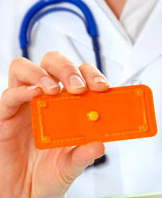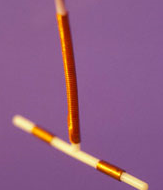If a patient has had unprotected sex or contraception has failed they may seek advice on emergency contraception.
There are two forms available:-
- The emergency hormonal contraceptive pill (commonly known as the morning after pill)
- Intrauterine device (IUD)
The Emergency Contraceptive Pill

The emergency contraceptive pill can be obtained free from GP surgeries, sexual health clinics and NHS walk-in centres. It is also available in some pharmacies for free under a Patient Group Directive (PGD) however the pharmacist must be accredited to provide this service. To find out more about offering oral PGD's in your pharmacy please visit NumarkNet here. Alternatively, if your pharmacist is not accredited for a PGD, the pill can be purchased by the patient for approximately £15 - £20. Anyone enquiring about the emergency contraceptive should always be referred to a pharmacist.
The EHC must be taken within 72 hours of unprotected sex but it is more effective the sooner it is taken, for example within 24 hours it is 95 percent effective. This reduces to 85 percent if taken between 25 and 48 hours and then down to 58percent if taken up to 72 hours.
There are no serious side effects but if patients are seeking advice then please ensure they are aware that the emergency contraceptive pill can cause nausea, dizziness, headaches, tenderness in the breasts and abdominal pain. Patients may also experience irregularity with their next period. If vomiting occurs within two hours of taking EHC the patient must take a second dose as the first will not be effective.
Intrauterine Device (IUD)

The intrauterine device can only be obtained from the GP or specialist sexual health clinic so you are unlikely to come across this type of emergency contraceptive, therefore it is only explained briefly to allow you to answer questions on it but always refer patients to their GP or local sexual health clinic.
An IUD is inserted into the uterus to prevent an egg from being fertilised or implanting in the womb. It can be inserted up to five days after unprotected sex or as early as possible after ovulating. The IUD is 99 percent effective and can also be used as ongoing method of contraception.
There are a few side effects to the IUD, discomfort may be felt immediately after the IUD is inserted. If used as a method of contraception then periods can become heavier, longer and more painful but in some women period may become significantly light or even stop.
